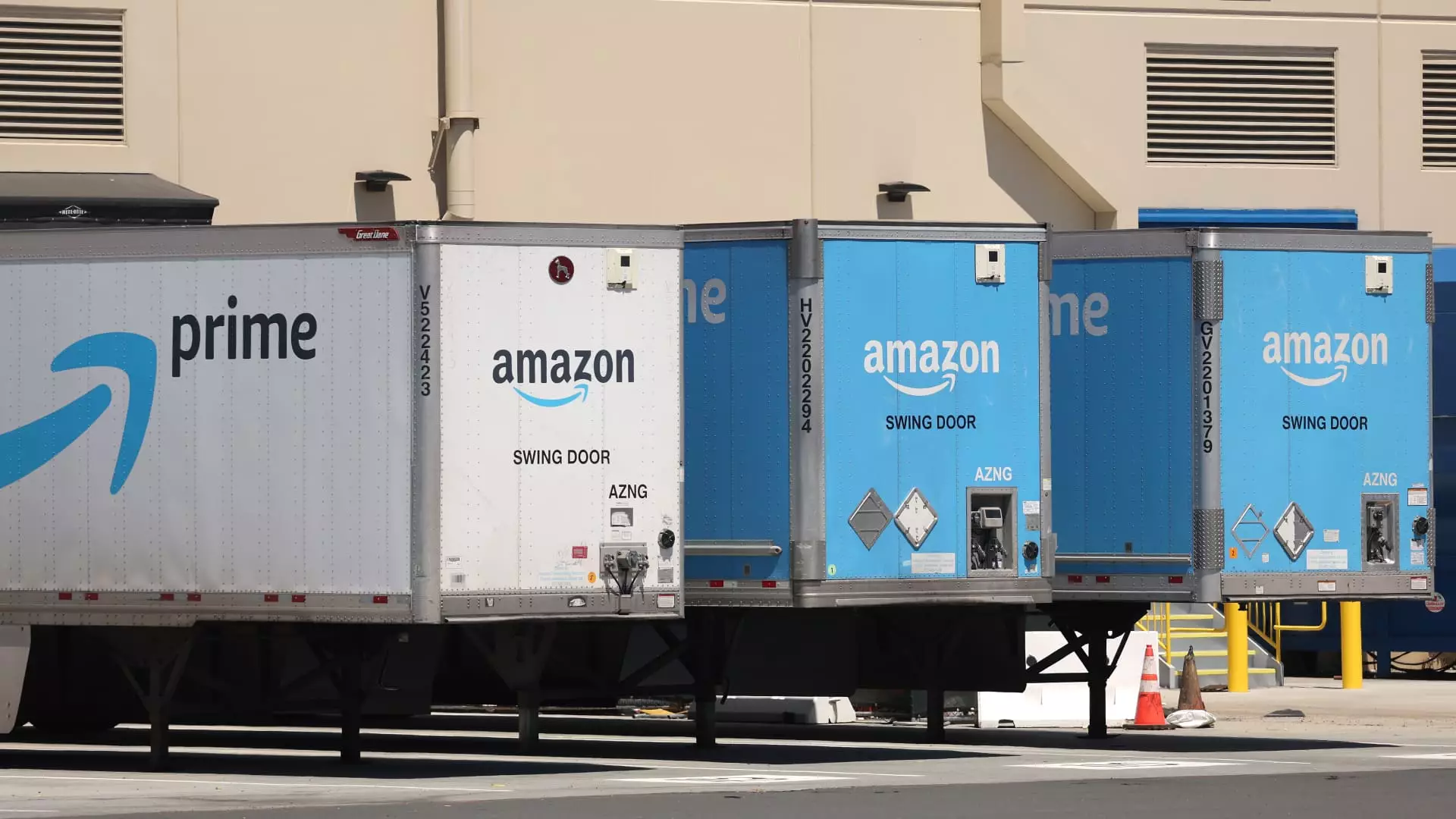In an alarming revelation, the Department of Justice (DOJ) has unveiled a sophisticated Armenian organized crime ring responsible for orchestrating thefts exceeding $83 million from Amazon. This shocking crime spree involves deceptive tactics, with criminals posing as legitimate truck drivers to pilfer truckloads of coveted merchandise intended for Amazon’s extensive network of warehouses. The boldness of this operation poses a direct question: how have such criminals so easily infiltrated one of the world’s largest e-commerce platforms?
The investigation traces the roots of this operation back to 2021, marking an escalation in organized crime’s notorious adaptability in the digital age. With online shopping becoming a vital lifeline for consumers, it seems that criminals have recognized the vulnerabilities in the system, leveraging leverage over traditional methods of crime. The DOJ complaint highlights the extent of the theft, targeting a variety of goods from smart televisions to home appliances like GE icemakers and SharkNinja air fryers. This variety suggests that thieves were aware of consumer trends, a calculated approach that reflects a disturbing blend of opportunism and planning.
Amazon’s Response to Cargo Theft: An Ongoing Struggle
The DOJ’s revelations come amidst a growing crisis within the logistics of e-commerce. For Amazon, a titan in this field, recurring cargo theft is a significant concern that threatens its operational integrity. The situation is so dire that the complaint cites specific instances of “cargo theft” as a commonplace issue. This captures a broader narrative in retail, where not only Amazon but also numerous retailers are grappling with burgeoning theft-related losses estimated to be close to $1 billion annually.
Amazon has taken decisive steps to address these challenges, ramping up its efforts to root out fraudulent activity on its platform. Yet, the delicate nature of tracking stolen goods remains a steep hurdle. The closures and suspensions of various third-party merchants due to alleged involvement in selling stolen goods underscore the difficulties Amazon faces while attempting to maintain an honest marketplace. Many of these merchants have argued that they unknowingly fell victim to the thieves, revealing a worrying chain reaction that compromises countless small businesses.
The Mechanics of Deception: How the Theft Ring Operated
This organized crime ring operated through four transport companies—AK Transportation, NBA Holdings, Belman Transport, and Markos Transportation—contracted under Amazon Relay to facilitate freight transportation. The ingenious yet flawed system appears to have been exploited through diversion tactics, misleading the platform under the guise of proper delivery protocols. By deviating from predetermined routes, members of this crime syndicate would take a portion of their cargo, further reducing the likelihood of detection.
Prosecutors have pointed out that these self-proclaimed carriers sometimes delayed their deliveries, leading to suspicion. In a particularly unnerving twist, investigators seized iPhones from the alleged perpetrators containing troubling evidence: photos and videos of warehouses filled with various stolen goods. This failure in operational security highlights the recklessness that often accompanies such grand schemes—showcasing not just the audacity of these criminals but also the potential downfalls stemming from their own hubris.
Connections to a Broader Criminal Landscape
The ramifications of this case go beyond a mere cargo theft incident. The DOJ affidavit reveals troubling associations, linking the defendants to a variety of other serious crimes such as attempted murder and illegal firearm possession. This association paints a grim picture; it suggests that the theft of goods is just a fragment of larger criminal activities undertaken by organized syndicates. Such underbelly operations often find fertile ground in the gaps of oversight in e-commerce logistics, raising urgent concerns about the implications for safety and law enforcement.
As the legal proceedings unfold, anticipation builds regarding the outcomes for the accused. Notably, several defendants were expected to face a district court in Los Angeles, while at least one was detained in Fort Lauderdale. The outcomes of these trials will shed light on the efficacy of law enforcement measures in combating organized crime that has infiltrated the very fabric of modern commerce.
In an era defined by convenience and speed, it is high time that e-commerce giants like Amazon bolster their defenses against such organized crime operations, ensuring that the shopping experience remains safe and reliable for consumers worldwide. The fact that these brazen acts can take place within such a robust platform is a wake-up call to prioritize security and accountability in our increasingly digital reality.

